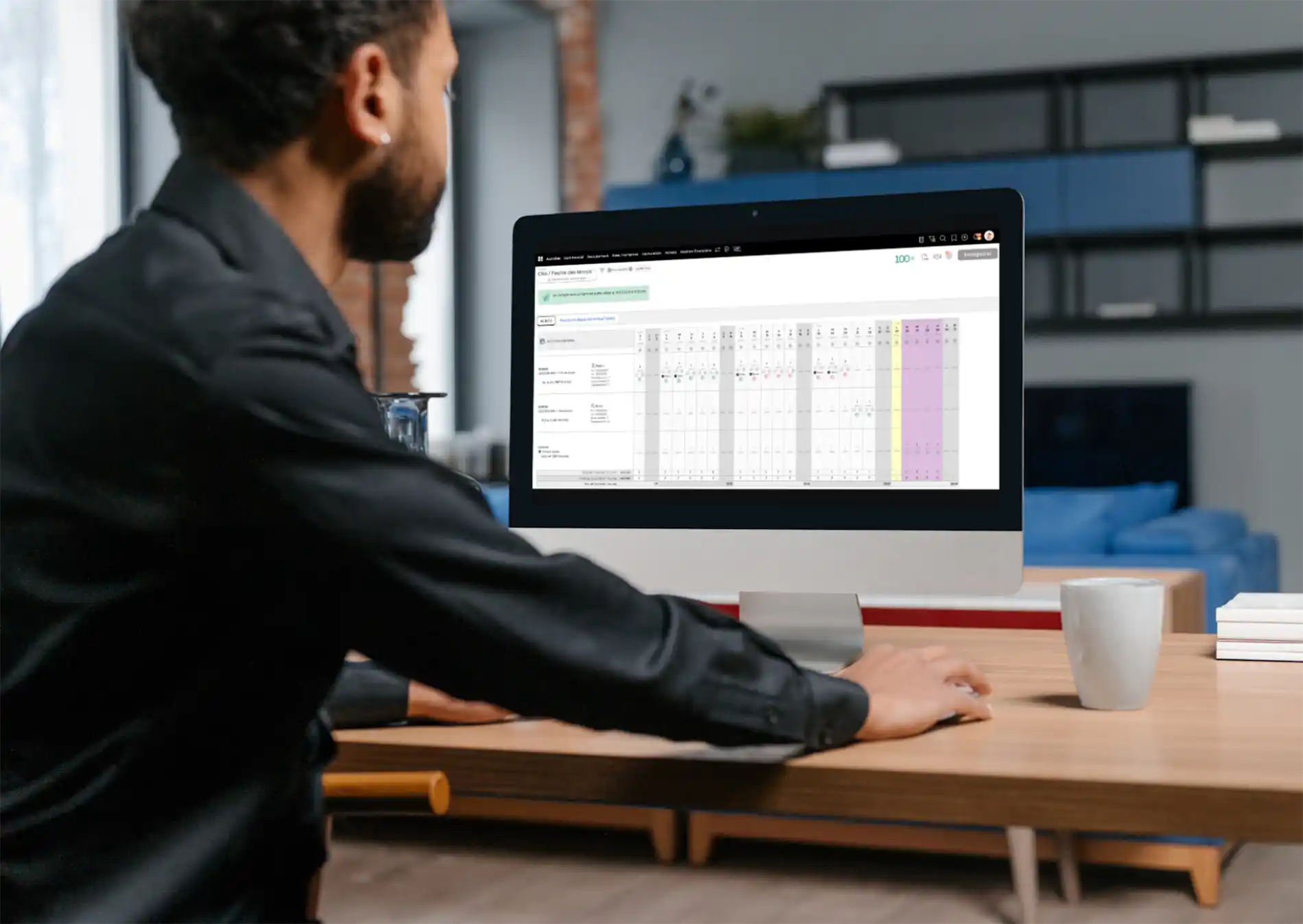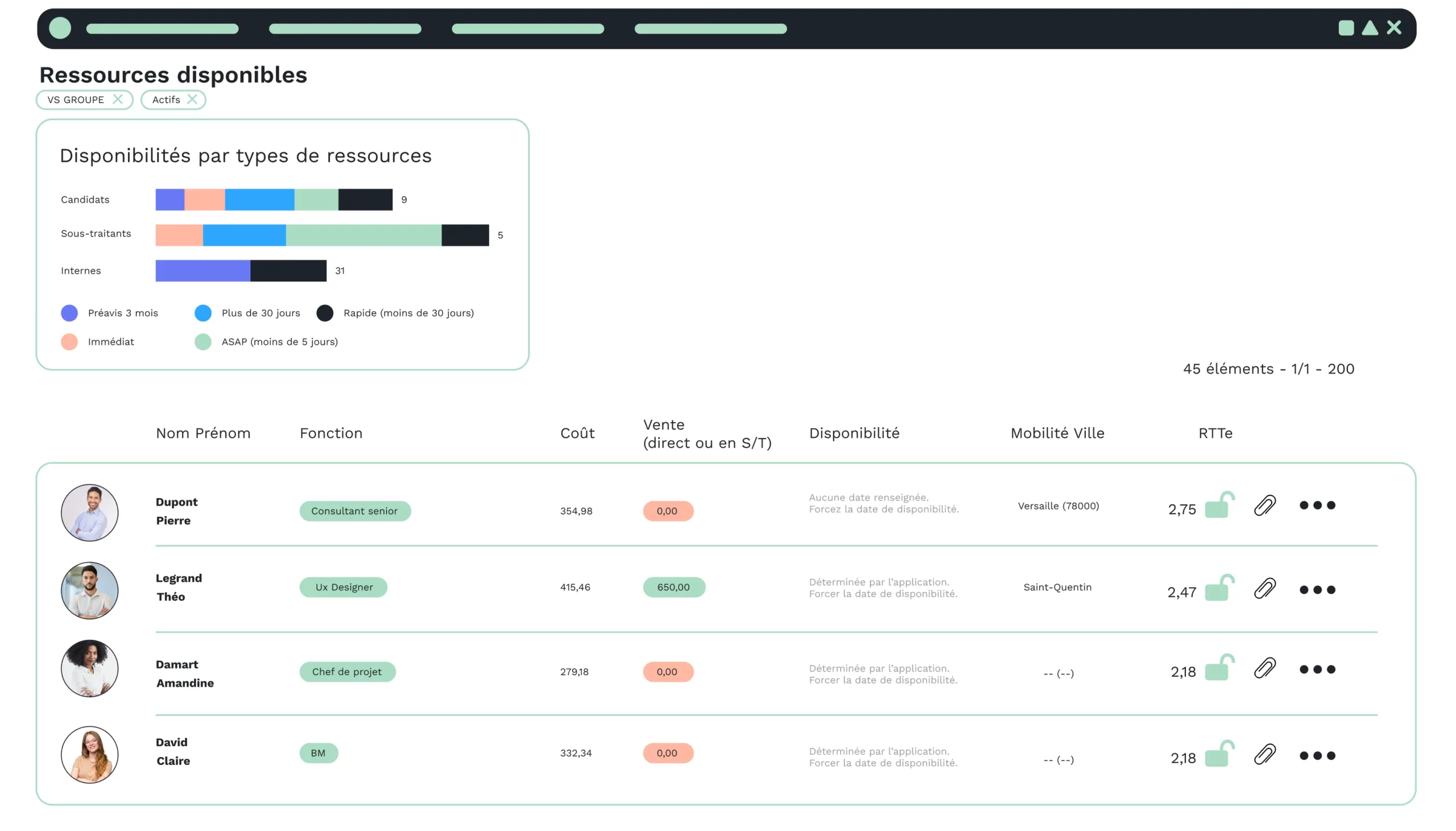Don’t know the difference between cloud ERP and SaaS ERP? Are cloud ERP and SaaS ERP the same thing? Well, it’s time to read this article that explains the difference between the two.
Before getting to the heart of the matter, it’s important to understand the context. Cloud ERP and Saas ERP cannot exist without what is known as cloud computing, and to understand what differentiates the two ERP systems, we need to understand this notion of cloud computing.
Here we go!
What is cloud computing?
Cloud computing means that a company’s entire information system is hosted outside the company, rather than on its own servers.
Outside the company means that the data is stored on this famous cloud. Technically speaking, data is stored in so-called “datacenters”. To access it, all you need is a computer, smartphone or tablet.
Cloud computing is defined by 5 characteristics, 3 service models and 4 deployment types.
Characteristics of cloud computing
- Service on demand
- Broad network access
- Pooling
- Scalability
- Customized service
Cloud computing service models
- IaaS (Infrastructure as a Service)
- PaaS (Platform as a Service)
- SaaS (Software as a Service)
Types of cloud computing services
- Private cloud: operated by a single company
- Public cloud: accessible to everyone
- Hybrid cloud: a mixture of private and public clouds.
Now that you know what cloud computing is, you can finally understand what distinguishes cloud ERP from Saas ERP.
What is cloud ERP?
A cloud ERP is defined as such when the solution is hosted on datacenters external to the user company and is optimized for local use.
Maintenance and updates are provided by the publisher, but updates are not automatic and require an additional financial investment on the part of the customer.
What is ERP SaaS?
SaaS ERP is a type of cloud ERP. The solution is hosted on the editor’s own servers. Maintenance and updates are performed automatically for all customers. This is called multi-tenant.
ERP SaaS is consumed as a service, as the name suggests, and is therefore subject to a subscription system, usually on a monthly basis.
What are the differences between cloud ERP and SaaS ERP?
While cloud ERP and SaaS ERP are similar in many ways, there are just as many points that differentiate them and make them distinct tools.
While both systems are hosted outside the user’s company, making them easier to use on the move, their development language is different.
In fact, SaaS ERP is developed in web language for use via the web, while cloud ERP will be developed with local use in mind.
This results in a differentiation in processing speed and rapidity. The speed of SaaS ERP depends on the Internet.
Another major difference is what we call multi-tenancy. SaaS ERP is multi-tenant, meaning that all users receive the same updates at the same time, whereas cloud ERP is single-tenant, meaning that updates depend on the goodwill of the customer.
Indeed, as mentioned above, updates are not included in the contract. This means that customers have to pay to be entitled to them, and not all customers have the same upgrades.
Here is a summary table
ESN: how to choose between a cloud ERP and a SaaS ERP?
Now that you know the difference between the two systems, you need to make a choice. Do you prefer the cloud or SaaS?
To find out, you need to take into account several parameters that are specific to your ESN:
- Specialized solutions to meet your company’s needs
- Technologies used that must not be obsolete
- Choosing the right cloud provider for your data management and security needs
- The possibility of upgrading the solution to meet your new needs
- Adaptability of the solution to your company’s growth, data growth, HR growth, etc.
- Cost, especially for updates if you choose a cloud ERP system
- Our services
VSA: SaaS ERP for ESNs, consulting firms, engineering firms, integrators and software publishers
VSA ERP is a SaaS solution dedicated to consulting firms, ESNs, integrators, engineering companies and software publishers.
The application’s servers are hosted on 3 separate sites in France, and VSA has been awarded the highest SSL/TLS security rating by Qualys SSL Labs.
The application focuses on its customers, since their needs guide the application roadmap.
The solution is priced on a monthly basis, according to the number of users. Contracts are non-binding.
What’s more, we offer a wide range of services to support our customers on a daily basis (support, online documentation, webinars, training, etc.).
Do you have a project in mind or are you just curious? Don’t hesitate to contact us.
Read also







